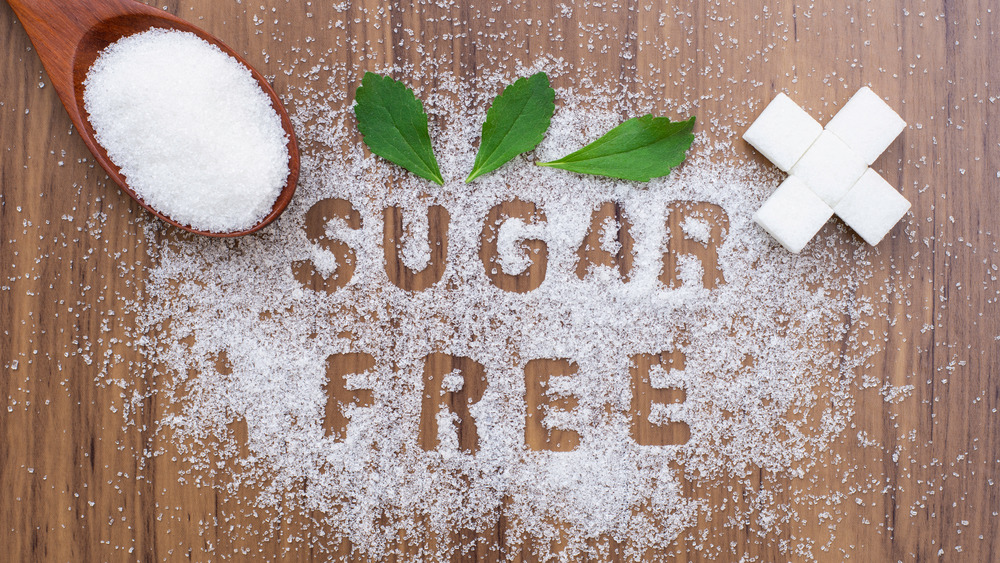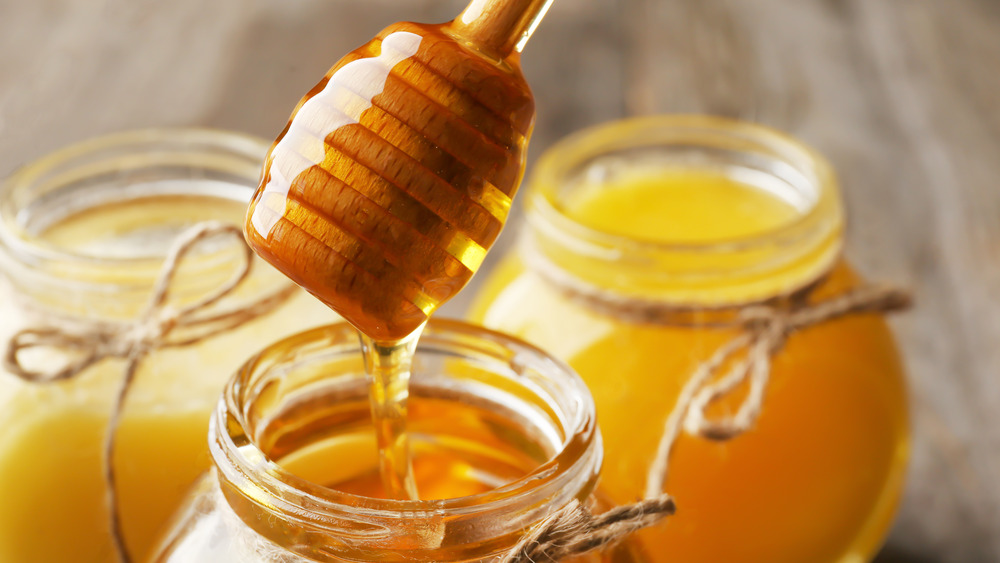Buyer Beware: Expert Exposes The Concerning Trick Some Food Companies Are Using
Sugar is often touted as the greatest of all food evils, and increasing research with animals has indeed demonstrated an overlap with drug reward and addiction mechanisms (via Neuroscience and Biobehavioral Reviews). In light of these findings along with the physical effects of high sugar consumption, food manufacturers are always on the lookout for substitutes. Unfortunately, there are some misleading practices concerning the use of sugar replacements. Mashed spoke with Dr. Nicole Avena, a research neuroscientist, and expert in nutrition, diet, and addiction, to understand the risks related to these swaps.
Dr. Avena remarks that the issue stems from the mandatory inclusion of added sugar on labels. In turn, companies have found ways to trick consumers who wouldn't choose foods with high percentages of added sugar. She notes, "in order to maintain the sweetness but reduce that number, companies are using alternative sweeteners, which aren't considered to be added sugar on the Nutrition Facts label." Companies can get by not reporting these in the daily values because "Non-caloric sweeteners and sugar alcohols are not considered added sugars by the FDA", Avena clarifies.
What are the negative effects?
There are now many different substitutes used to sweeten products while adding minimal calories and retaining a sugar-free label. Dr. Avena explains that "Sugar alcohols are carbohydrates that provide a minute amount of calories per gram." She compares erythritol to sugar, noting that the former contains 0.24 calories per gram while sugar clocks in at 4 calories per gram. Dr. Avena reveals that, unlike artificial sweeteners such as Splenda, "erythritol has a comparable sweetness to sugar (60-80 percent as sweet), meaning you can use it in a one-to-one ratio to replace sugar in a recipe." This is beneficial because sweeteners with exponentially greater sweetness need to rely on additional ingredients "to make up for the volume lost when replacing the sugar," Avena notes.
If sugar alcohols had no undesirable effects this might not seem like a big deal. However, Dr. Avena points out that "sugar alcohols are not completely absorbed in the intestines, so they go on to be fermented by bacteria in the large intestine, which can cause gas, bloating, diarrhea, and abdominal discomfort." Anyone who ate too many Haribo sugar-free gummy bears before they were recalled knows the potential horror of consuming too many sugar alcohols (via Forbes). Dr. Avena notes the side effects are variable among people and that some sugar alcohols can be harder to tolerate than others.
What can you do?
It is unfortunate that in an aspiration to make healthy sugar-free products, manufacturers are resorting to substitutes that can have negative physiological effects. Closely reading ingredient lists can help identify whether sugar alcohols are present — many of them end in "ol" (via U.S. Food & Drug Administration). However, the FDA notes that unless a specific health claim is made on the packaging, including sugar alcohols under the Nutrition Facts Label is voluntary.
While sugar might not be the answer, sugar alcohols have their fair share of unwelcome side effects. Since large companies are glad to be able to label things as sugar-free to cater to more consumers, it is important to know what else they are adding to the foods you eat to be able to monitor whether they will lead to discomfort. If you're looking for healthier alternatives to refined white sugar, choose fruit purees, maple syrup, or honey for a start.


